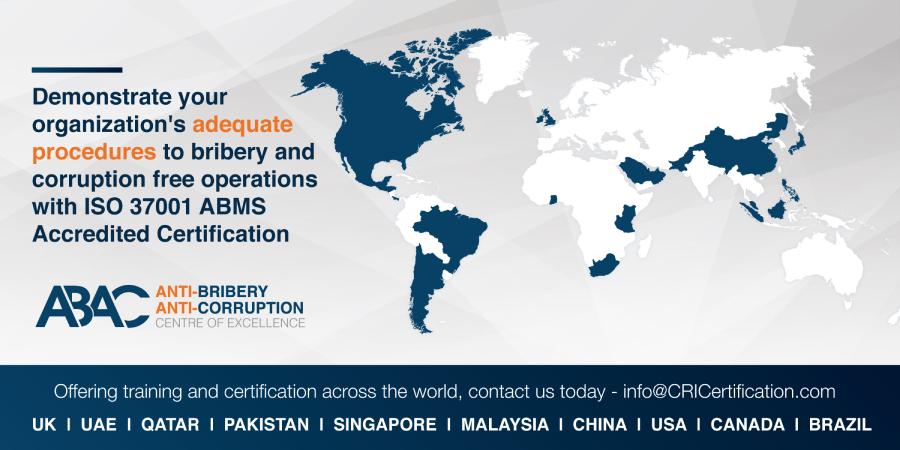Unmasking the Dark Secrets: The Hidden Dangers of Skipping ISO 37001 Certification
In the cutthroat world of global business, the spectre of bribery and corruption looms large, posing a grave threat to the integrity and reputation of organizations worldwide. As the first quarter of 2024 unfolds, the imperative of being certified with the ISO 37001 Anti-Bribery Management System (ABMS) emerges as a pillar of resilience and ethical fortitude for organizations across industries. Let’s delve deeper into the myriad implications of lacking ISO 37001 certification, painting a vivid picture of the risks and consequences that organizations face in the absence of robust anti-bribery measures.
The High Stakes of Non-Compliance
For organizations that neglect the importance of ISO 37001 certification, the stakes are alarmingly high. Lacking a structured anti-bribery framework leaves organizations vulnerable to the insidious influence of corrupt practices, jeopardizing their credibility, financial stability, and legal standing. The absence of stringent anti-bribery measures not only exposes organizations to regulatory scrutiny and hefty fines but also tarnishes their reputation, eroding trust among stakeholders and customers alike.
Legal and Reputational Fallout
The repercussions of failing to obtain ISO 37001 certification extend far beyond financial penalties. Organizations that falter in implementing robust anti-bribery controls risk facing legal proceedings, criminal investigations, and severe reputational damage. The fallout from a bribery scandal can be catastrophic, leading to loss of business opportunities, diminished investor confidence, and irreparable harm to brand integrity. In an era where transparency and ethical conduct are paramount, the absence of ISO 37001 certification can spell disaster for organizations caught in the crosshairs of corruption allegations.
Financial Implications and Operational Disruption
The financial ramifications of lacking ISO 37001 certification are profound, with potential costs stemming from legal fees, regulatory fines, and damage control efforts following a bribery incident. Moreover, the operational disruption caused by a bribery scandal can destabilize business operations, disrupt supply chains, and hinder growth prospects. Organizations that neglect to fortify their anti-bribery defences face a downward spiral of financial losses, diminished productivity, and increased vulnerability to fraudulent activities.
Loss of Competitive Edge and Market Share
In today’s hypercompetitive landscape, organizations that fall short in obtaining ISO 37001 certification risk losing their competitive edge and market share to ethically compliant counterparts. Customers, investors, and partners are increasingly gravitating towards businesses that prioritize integrity and accountability, making ISO 37001 certification a hallmark of trust and credibility in the eyes of stakeholders. Failure to demonstrate a commitment to anti-bribery best practices not only alienates potential business partners but also erodes consumer confidence, leading to a decline in market relevance and competitive standing.
A Call to Action: Embracing ISO 37001 Certification for a Secure Future
Amid the perils of bribery and corruption that threaten the fabric of organizations, the imperative of ISO 37001 certification must be unequivocally acknowledged as an essential mandate rather than a discretionary choice. By obtaining ISO 37001 certification, organizations can fortify their defences against bribery risks, safeguard their reputation, and instil a culture of ethical conduct that resonates with stakeholders and customers. Embracing ISO 37001 certification is not just a compliance requirement—it is a strategic imperative that paves the way for sustainable growth, enhanced trust, and a secure future in the face of ethical challenges.

Lastly, in the tumultuous landscape of global business, the implications of lacking ISO 37001 certification are far-reaching and profound, encompassing legal, financial, reputational, and operational risks that can spell disaster for organizations unprepared to combat bribery and corruption. As organizations strategically manoeuvre through the intricate landscape of ethical compliance, the indispensable requirement of ISO 37001 certification serves as a steadfast example, setting the path towards a future characterized by integrity, trust, and enduring success. In a world where ethical conduct is non-negotiable, embracing ISO 37001 certification is not just a choice— it is imperative that organizations dedicated to upholding the highest standards of anti-bribery practices and ethical governance adopt this as a self-imposed mandate.


